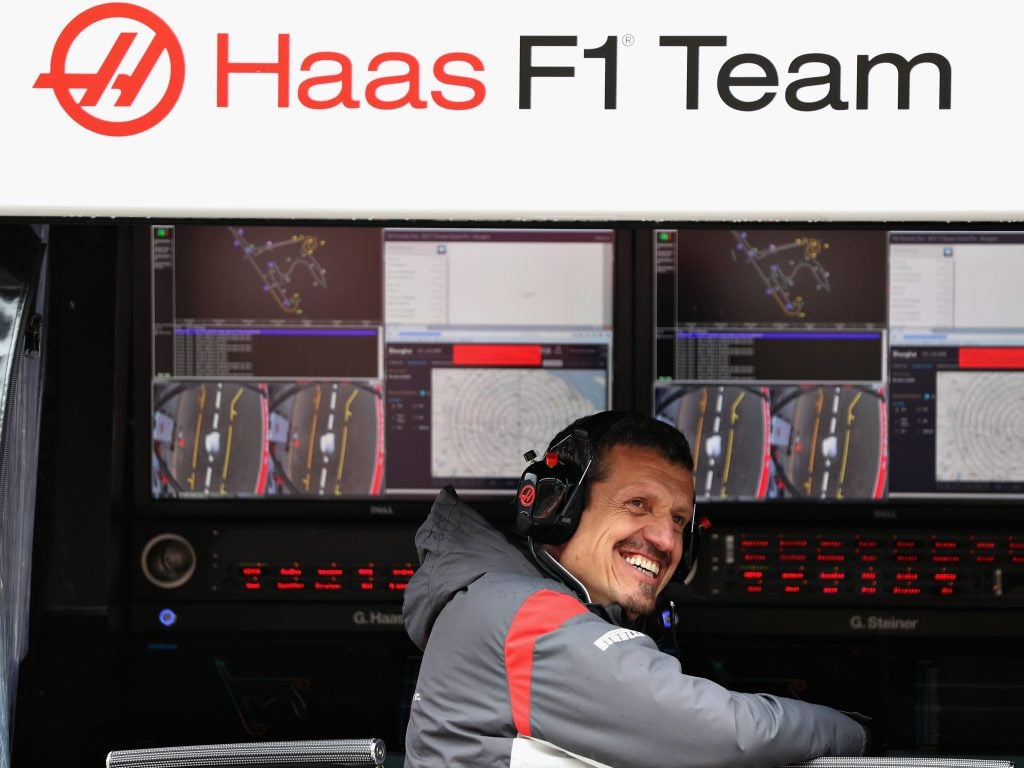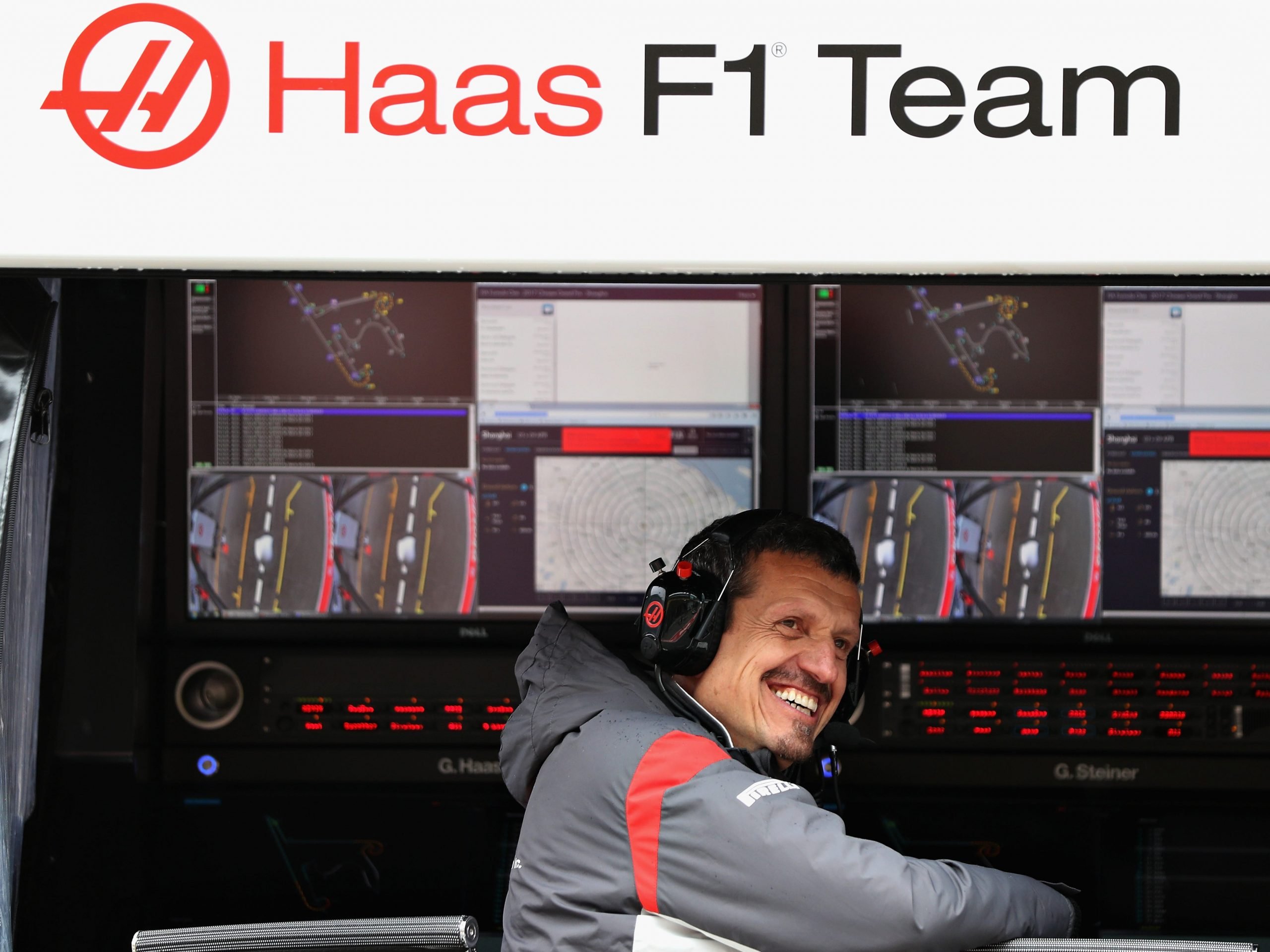
Mark Thompson/Getty Images
- Haas' team principal Guenther Steiner spoke to Insider to explain what his job is all about.
- Steiner joined Haas at its inception in 2014 and was a breakout star of Netflix's "Drive to Survive."
- The Italian-American told Insider that there are no quiet days, and that he never knows what he'll be dealing with.
Behind the drivers, the role of the Formula One team principal is arguably the sport's most crucial job. Effectively acting as the manager of the team, they are charged with ensuring everything keeps running smoothly.
It is an extremely rarified role, with only 10 people in the world doing the job at any given time. One of those people is Guenther Steiner, team principal of the Haas F1 team, and one of the sport's most colorful characters.
"There are not many quiet days," Steiner told Insider a day out from the start of the Turkish Grand Prix weekend at the start of October.
"You start with the race on Saturday and Sundays, then on Monday you get back and have to deal with the more mundane things like managing people, HR stuff, business stuff with our partners and sponsors. There is so much stuff you have to deal with.
"There is always a surprise every day."
'You have to deal with the people, drivers, the politics of the sport.'
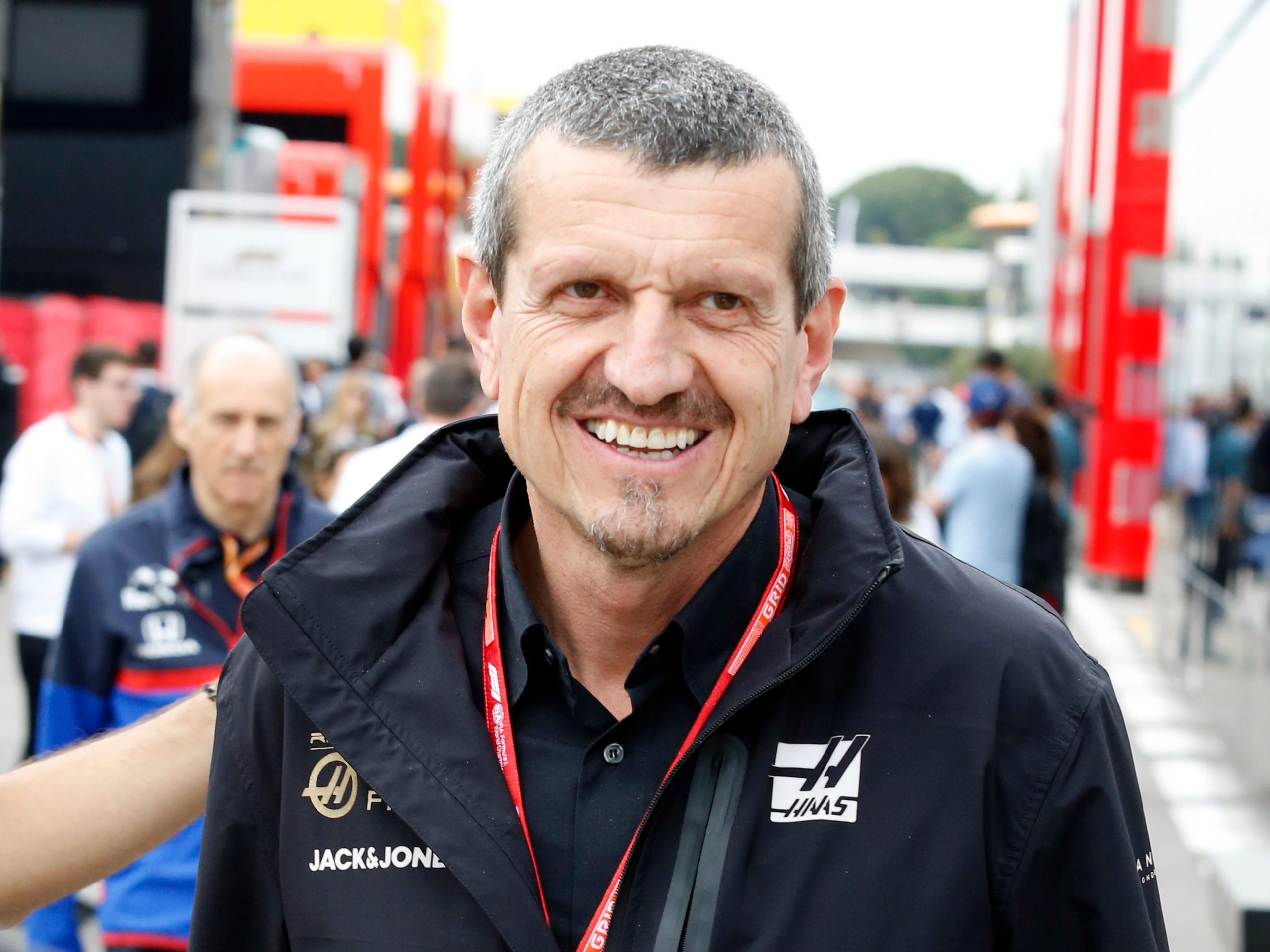
Marco Canoniero/LightRocket via Getty Images
Through his colorful language and tell-it-how-it-is approach, the Italian-American Steiner became a breakout star of Netflix's "Drive to Survive," a fly-on-the-wall documentary credited with hugely increasing the popularity of F1, particularly among younger American viewers.
Born in the Northern Italian town of Merano, Steiner is into his 35th year in the motorsport industry. He has been Haas' team principal since the team's inception in 2014 and describes his role as like a general manager or CEO of a company.
"You look after the whole company. I would say the only thing different to a standard company is that you have to do a lot of things you don't normally have to do in a standard company.
"You have to deal with the technical stuff, you have to deal with the people, drivers - who are very complex people - you have to deal with the politics of the sport. There is a lot to deal with."
'I don't know if I always wanted to be a team principal, I don't know if I want to be one right now!'
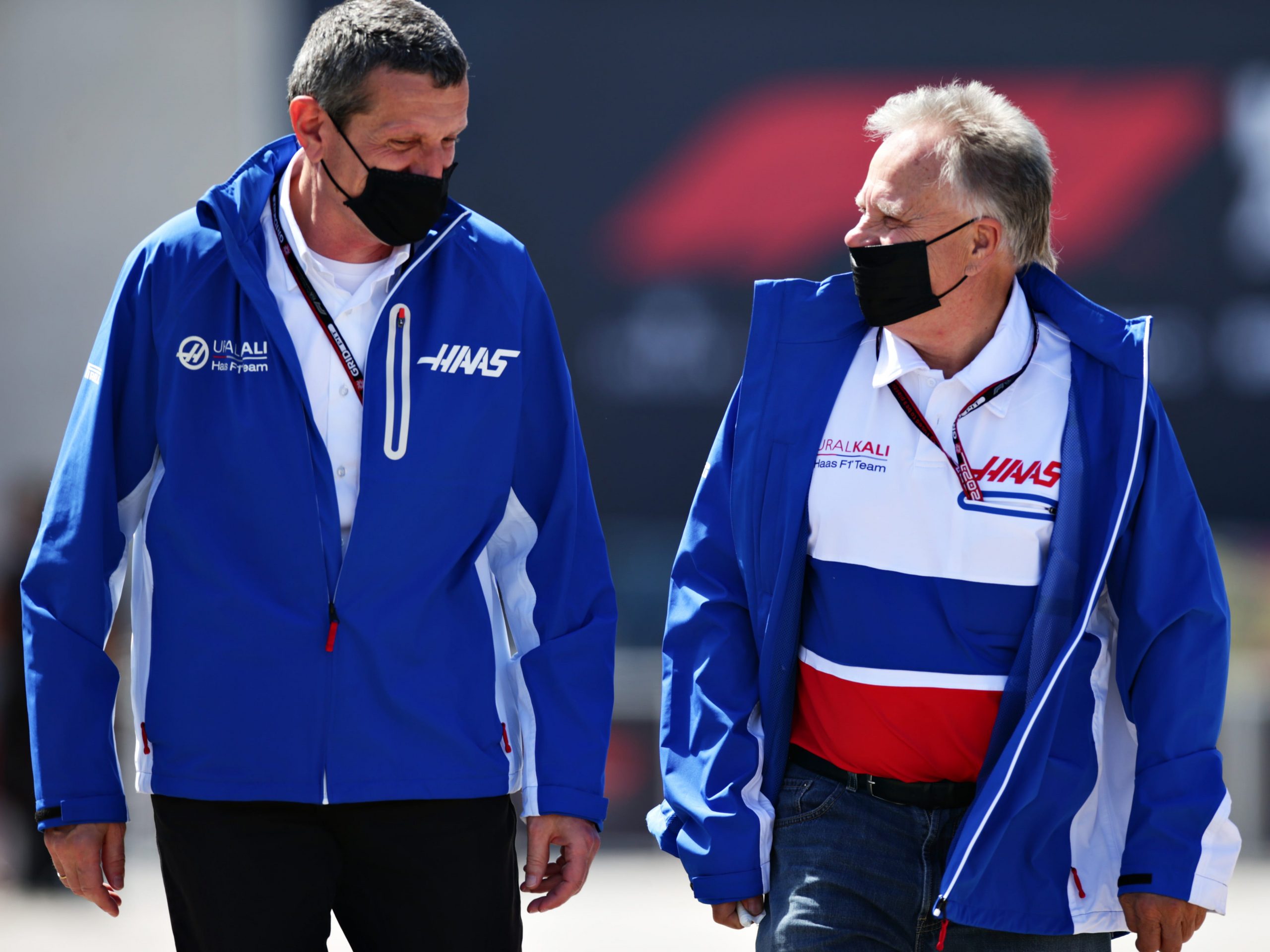
Peter Fox/Getty Images
Steiner was tasked by team owner Gene Haas to not only create a new team from scratch, but the first American team in the sport since 1986, the same year Steiner entered the industry. Back then, becoming team principal was never a target for him.
"I don't know if I always wanted to be a team principal, I don't know if I want to be one right now!
"It's not something I gave myself as a target 20 years ago saying 'I want to be an F1 team principal' - no.
"I've worked in motorsports for 35 years now, it's a long time. It's step-by-step so at some stage, that became the only place to go to.
"There are only 10 principal jobs in this sport, so there are only so many places you can go. It's not like football where you've got a lot of places to go to.
"I started when Gene Haas got to know me and said I think you're the right guy to do this."
Providing a 'bigger picture' look on race day
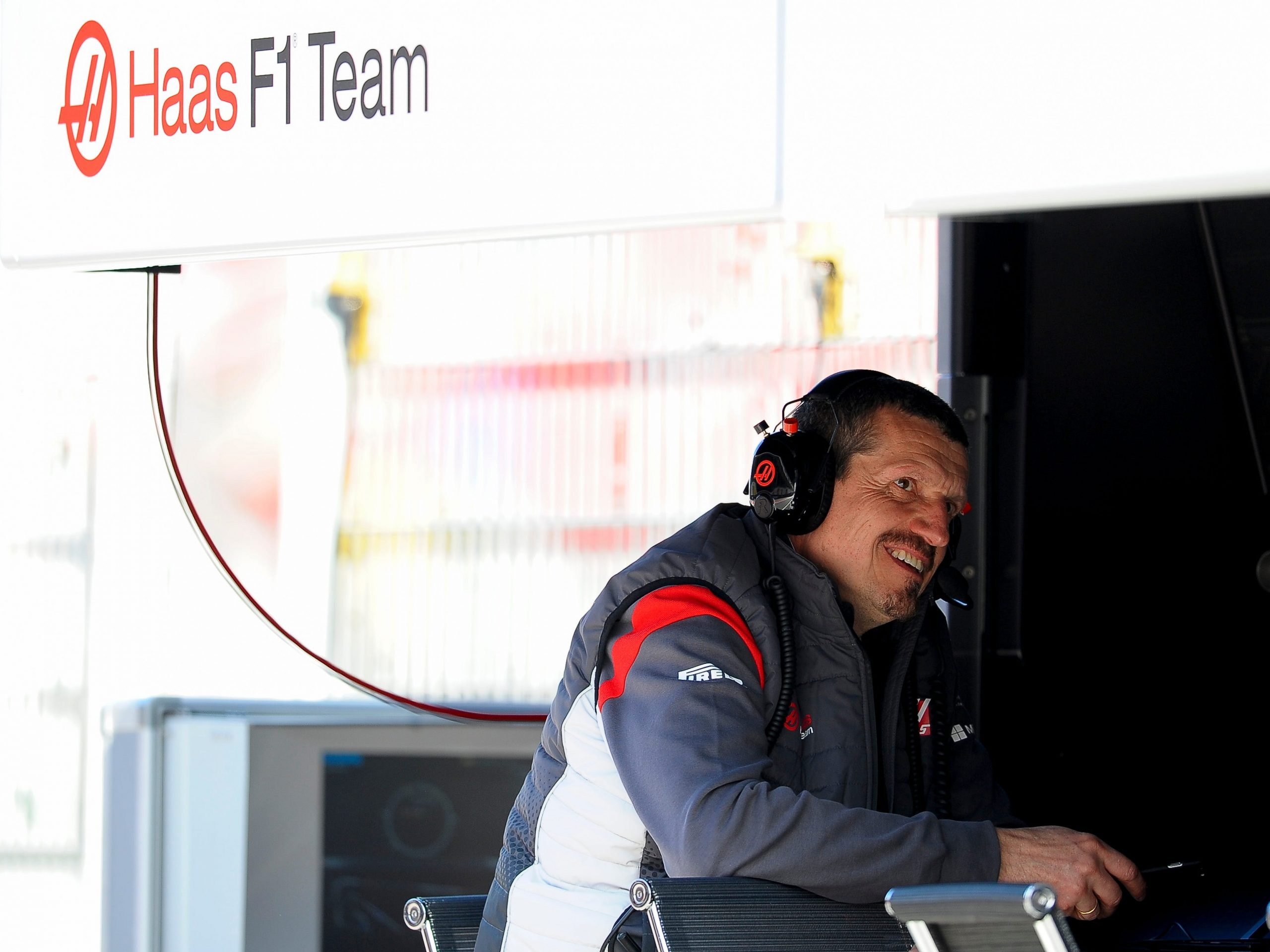
Joan Cros Garcia/Corbis via Getty Images
The role of a team principal come race day can vary.
For Steiner, he likes to see the bigger picture.
"I wouldn't say I'm hands-on but I'm also not hands-off.
"With our chief race engineer (British-Japanese staffer Ayao Komatsu), I've got a very good relationship. We work well together, I don't interfere.
"They get in their race mode whereas I can see the bigger picture. I understand racing pretty well and I like to do it but I know that somebody needs to take the decisions and it shouldn't be me.
"He sometimes asks me my opinion, I sometimes tell him some things which I see out on the race track and just make sure that he sees them but I'm not making the calls here.
"I just try to support as best as I can and if I'm needed, I'm there to help. Sometimes I'm needed because they trust me pretty well.
"I'm just there to support them. That's my role but I'm quite involved mentally in that. I'm not just watching the race as a spectator."
Haas and the opportunity to shape things in his image
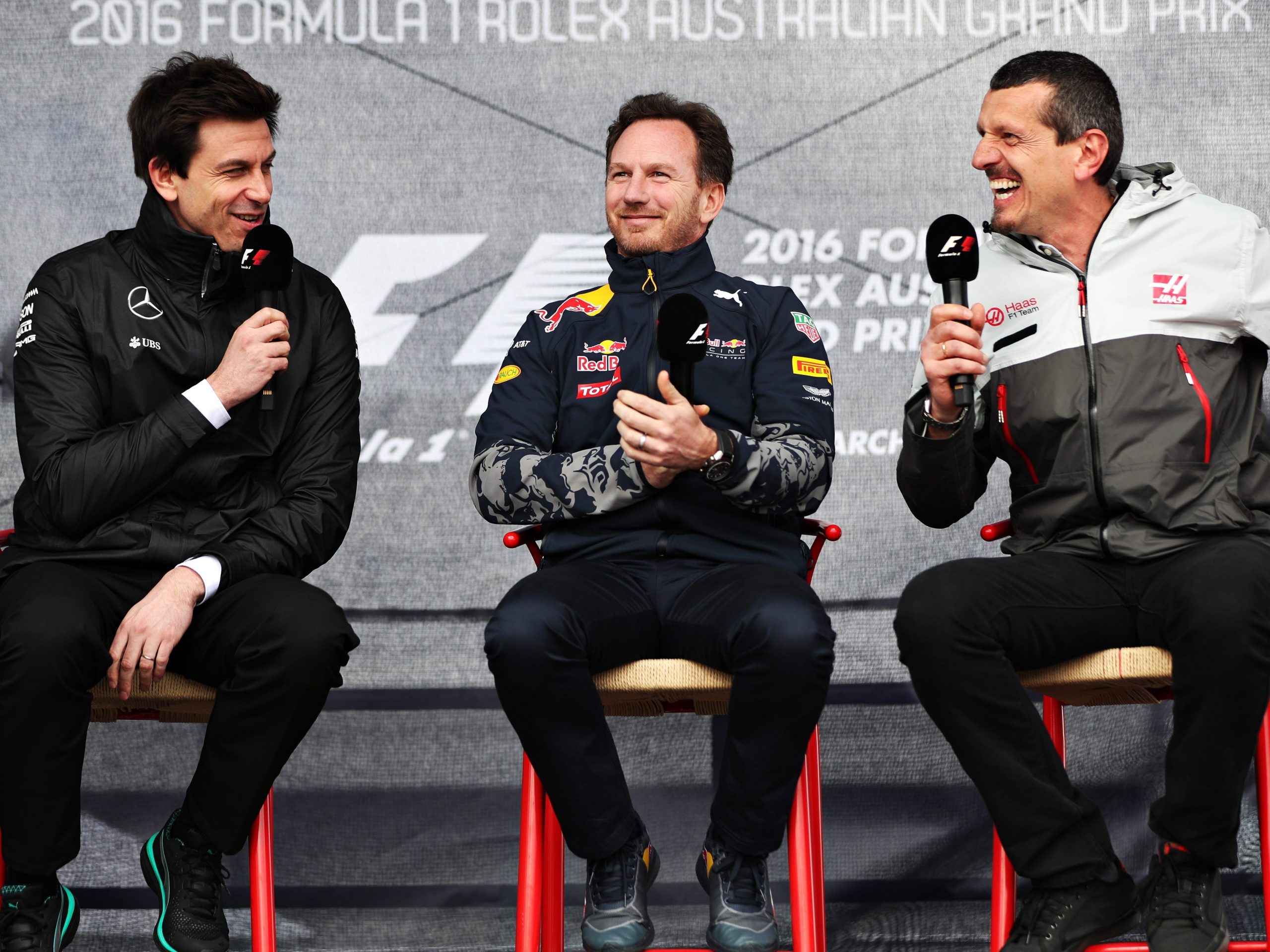
Mark Thompson/Getty Images
Before Haas, Steiner worked alongside Christian Horner at Red Bull when the team was in its infancy but starting a team from the ground up provided Steiner with the opportunity to shape it in his image.
"From my perspective, as a general manager you can mold it as you want to see it. You don't come in somewhere where you have to fix things and change things which takes a lot of time as well.
"On one side, it's nice sometimes if you get into a successful team and you just have to run it. It's pretty easy and when everything is right, running anything is easy.
"But when you start something new, you have to make it your way and make sure you make it successful for the future, not only for the short term.
"I quite like to start something from new so you can get your ideas in.
"Gene Haas let me do quite a lot of stuff because he said 'you have done this before, you have started race teams before, you have done this quite a long time.'
"I just tried to do what was best, I always exchanged notes with him on what I was trying to do obviously, but he always supported me which was fantastic for me."
'COVID was the biggest challenge in Haas' history'
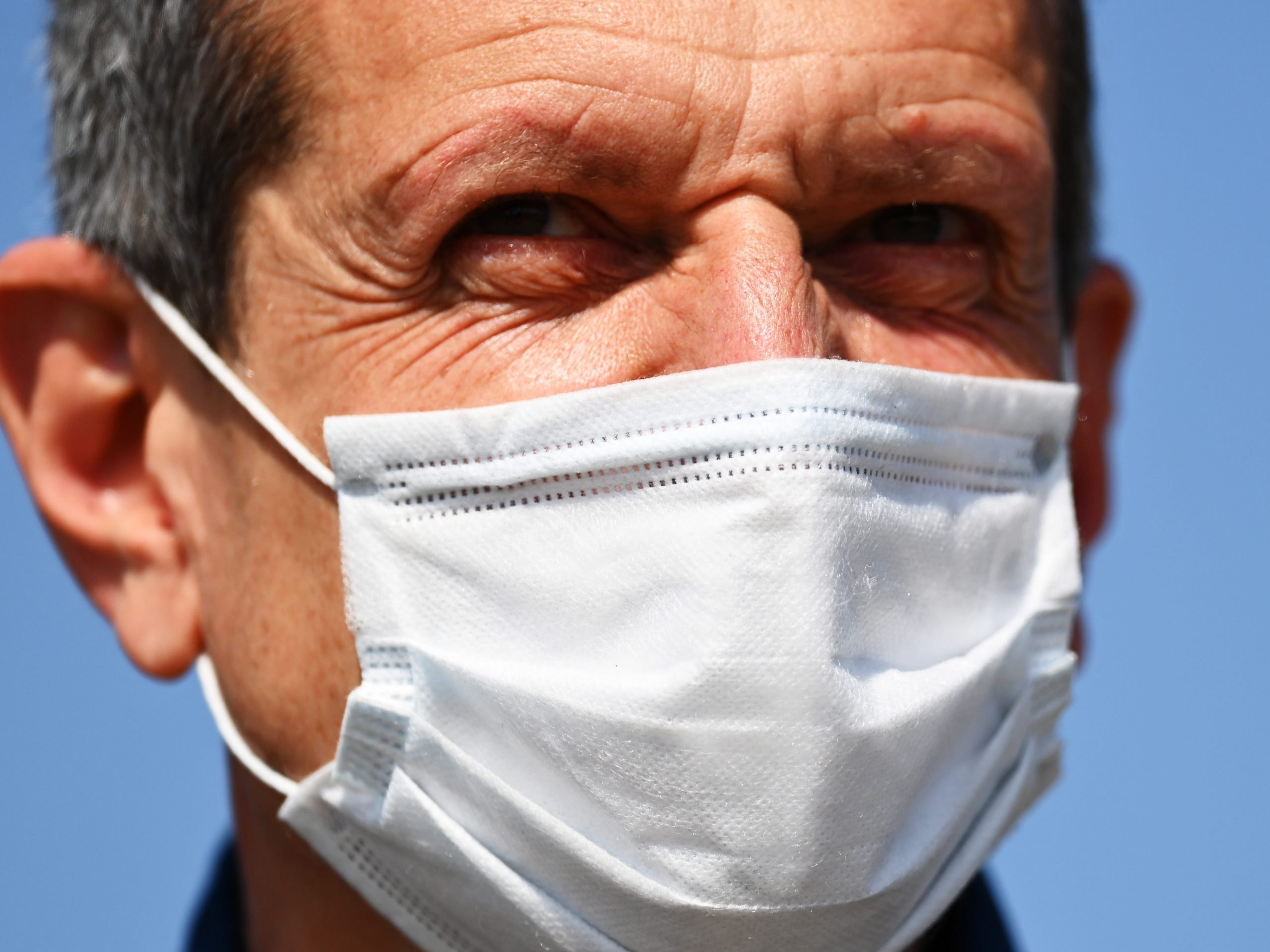
Clive Mason - Formula 1/Formula 1 via Getty Images
Under Steiner's leadership, Haas finished its debut season with 29 points then improved the following year to earn 47 points. Life has been tough since then, and in 2021, the team is far and away the slowest on the grid.
Steiner admitted it became a matter of keeping the team alive rather than aiming for podiums and described the impact of the COVID pandemic as the hardest thing the team has ever faced.
"It hit at the complete wrong time for us.
"Our car wasn't good, then COVID hit and the commercial agreement we had expired. It was a challenge keeping the team going and that's the biggest challenge up to now.
"The challenge last year was bigger than starting the team up in my opinion because there is something there, you want to keep it going but you need to make a case so that the owner keeps it going.
"That was the biggest challenge in Haas' history."
A change in approach with the arrival of two rookies in the paddock
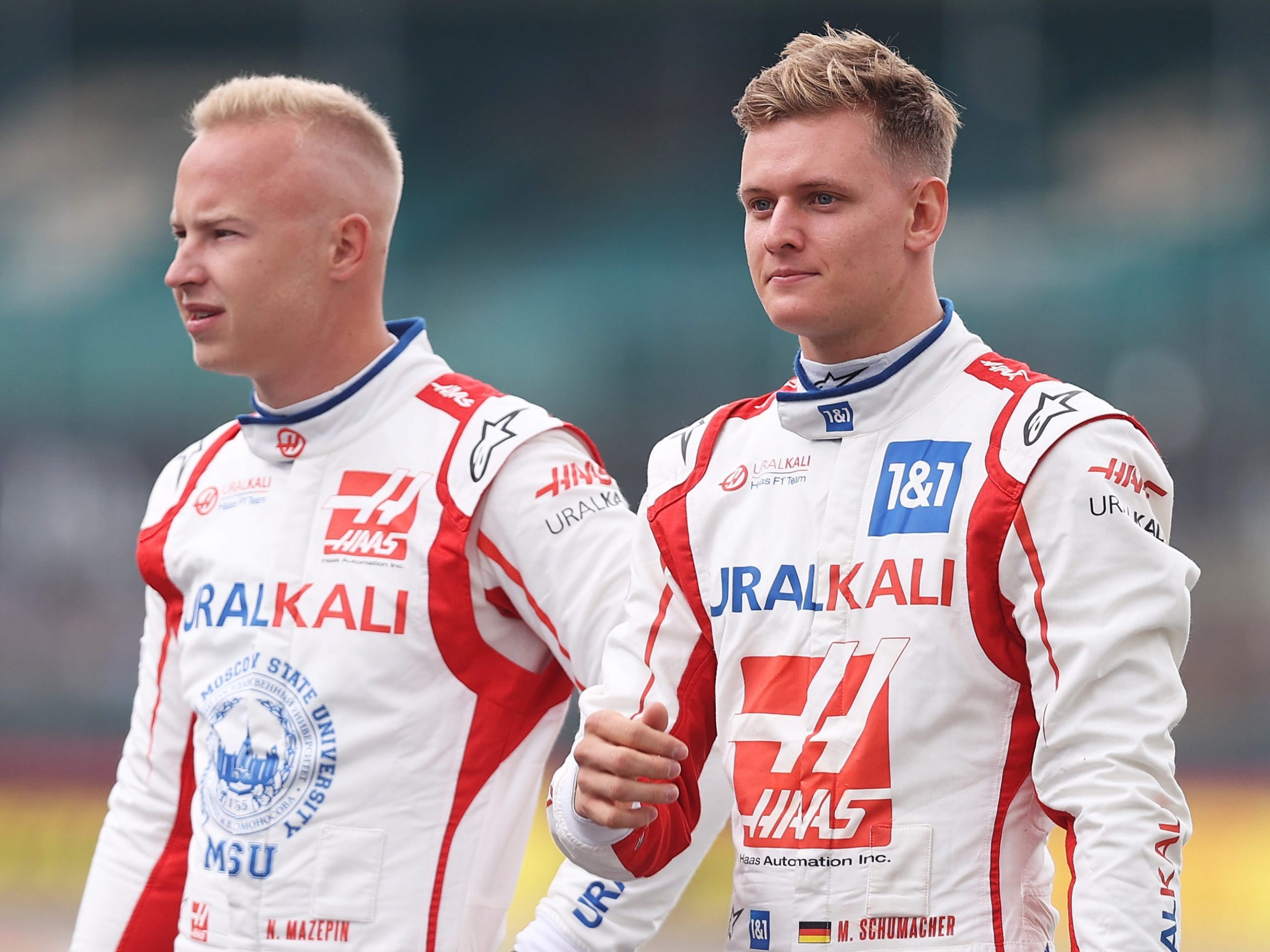
Lars Baron/Getty Images
The start of the 2021 season saw the introduction of two new drivers to the grid in Mick Schumacher and Nikita Mazepin, replacing veterans Romain Grosjean and Kevin Magnussen.
Neither had ever raced in F1 before, with both arriving from the sport's feeder series, Formula 2.
Steiner said he has changed his approach with the arrival of two rookies, both 22 years-old, to the garage.
"I had to change because I can't expect rookies to be at the level the other guys were because the other guys were on a pretty good level.
"With these guys, I need to explain more why things happen and how they happen.
"That is what I try to do. When I see they are ready to be pushed harder, that is what I will do but in the moment, I try to give them as much as I can of my experience so they are getting prepared quicker."
Steiner says with the introduction of budget caps, the goal now is for Haas to be fighting for points.
"Next year [the goal is] to be back in the midfield, to fight for points.
"Mid-to-long term, it is to get podiums and hopefully at some stage, Haas can get wins.
"I'm realistic about it, that is not a short or mid term thing. With the budget caps that are coming in, the playing field should get more even. That is what we are working on and I think it's achievable."
